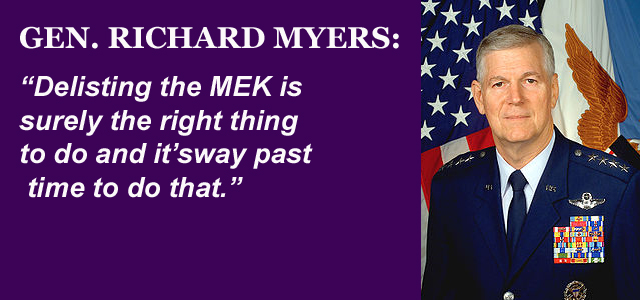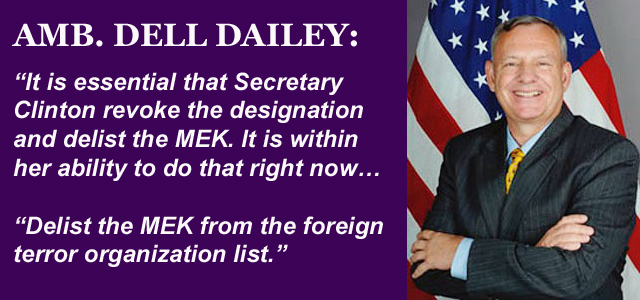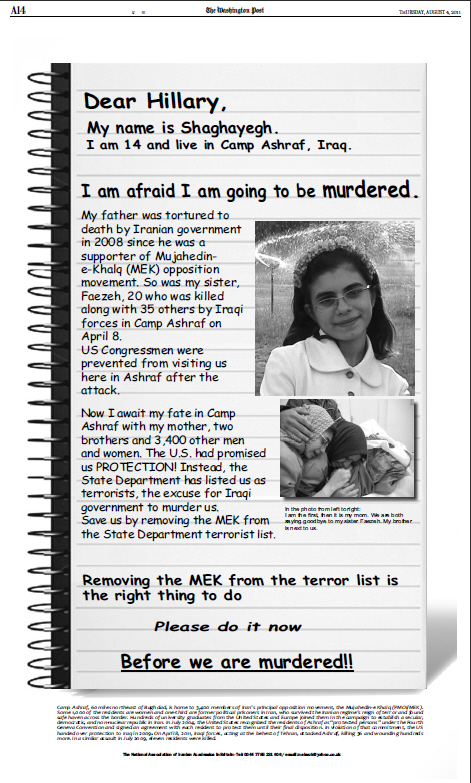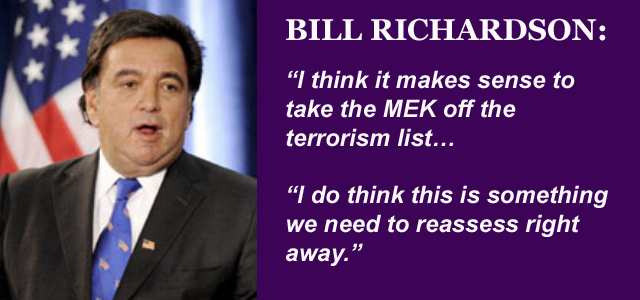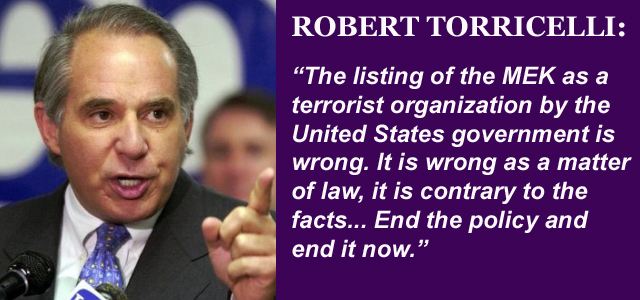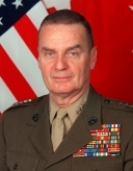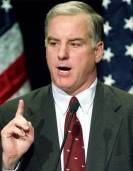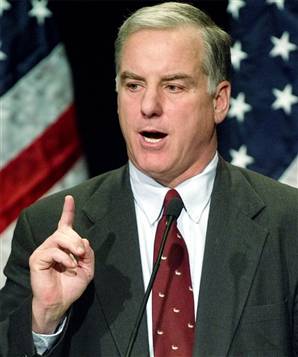Richard Myers Calls for Delisting of MEK
Irony Of Promise And Action
“The United States will continue to stand with those who struggle to assert their fundamental humanity. It is essential that these brave people know that the international community supports them, just as it is essential that human rights abusers in Damascus and Tehran know that we are watching them. Until such time as they are held accountable by domestic authorities, it is our responsibility to hold them accountable at the international level,”(Testimony of Jeffrey D. Feltman , Assistant Secretary, Bureau of Near Eastern Affairs House Foreign Affairs Committee, Subcommittee on the Middle East and South Asia Washington, DC July 27, 2011.)
Writing the above statements on stacks of papers and reading them aloud to pose as a strong advocate of human rights is one thing, while sending the State Department’s Field Operator into negotiations with Iranian political dissidents in Camp Ashraf, opposing the Mullahs regime in Iran, and asking them to choose between dying or giving up their beliefs and being dispersed as individuals without any organizational cohesion, is another thing.
A few days earlier on July 23rd, the New York Times quoted Ambassador Lawrence E. Butler, the American diplomat, as saying, “The Americans have offered a plan in which the group’s members would vacate this camp, which during Mr. Hussein’s tenure served as a military base, and relocate to another site in Iraq, where they would disband, an essential step before the United Nations would recognize the members as refugees. To the outside world, you look like a paramilitary organization.”
The organizational structure of any political institution is the most evolved means to represent the individual members’ social and political beliefs. The more savagely human rights are violated by a ruling regime, the harder this organization holds to its principals, and naturally, the more persistent it is to protect them. While MEK is recognized as the most effective opponent against mullahs in Iran, the message being conveyed by Mr. Butler to disperse this organization satisfies the ruling religious dictatorship in Iran, and indeed, it is the solution suggested by the Mullahs prior to Mr. Butler. However, it is evident that MEK would not accept the Mullah’s long term ambition, which is being carried out unwittingly by an American ambassador.
As an inseparable component of modern societies, human right’s values have evolved to endorse other social and industrial developments and policies. That in the above case the conduct of policy on the political field yields a contradictory result such as I have mentioned above, should be very alarming for high-ranking decision makers.
In the case of the residents of Camp Ashraf, the United States has signed a protection treaty with every person of the camp, and yet Iraqi’s Army under Maleki has nevertheless attacked the camp on several occasions killing as many as 50 of the residents under the watch of American forces.
It should be acknowledged that while human rights values play a vital role on the international stage to attract confidence and trust, the violation of protected rights of the Camp Ashraf residents will potentially be a distinguishing factor in the failure of future projects, and a continuous embarrassment for the United States.
It is essential that the United States fulfil its promise to protect unarmed civilians of Camp Ashraf, as well as play an active role within other international bodies, such as the United Nations, to move these residents to a safe third country in support of the EU plan. In the absence of such policy and action, the United States will be paying the price as a participator and collaborator of the violation of human rights for years to come, just as the Dutch are learning they have to pay for Srebrenica.
Mehran Amini, is a former Pilot opposing Mullahs regime in Iran who lives in Toronto, Canada and may be contacted by email at: mehran.amini411@gmail.com.
Abandoned allies?
THE NEW YORK POST
Don’t betray Iranian refugees
Some 3,400 innocent Iranian dissidents now living in a camp in Iraq are in imminent danger of being slaughtered. These men, women and children — members of Mujahedin-e Khalq, or People’s Mujahedin, a longtime Iranian opposition movement — trusted America’s promise to protect them. But the gradual US withdrawal from Iraq leaves that promise in doubt.
As a former base commander of Camp Ashraf, the official name of the MEK’s besieged refuge, I’d like to make one thing clear: Despite charges that the MEK is a terrorist organization, these people are American allies. It would be foolish, as well as wrong, to abandon them.
As America pulls back, Iranian influence is on the rise in Iraq — notably in Diyala Province, where Camp Ashraf is located. As Iraqi Prime Minister Nouri al-Maliki and Iran’s President Mahomoud Ahmadinejad grow closer, the MEK’s situation becomes more critical.
These innocents’ vulnerability was made tragically clear on April 8, when elements of the Iraqi army used US-supplied vehicles and equipment to raid the camp, killing 34 defenseless people and wounding nearly 350.
In videos of the event, we witness the courage of the residents of Ashraf. Despite knowing they may be the next to die, they rush to rescue their fallen comrades.
Courage under fire is an admirable trait. Killing unarmed people is murder. Yet the State Department has done nothing of substance to address these attacks or the overall Ashraf situation.
Sadly, the State Department even now continues to list the MEK as a terrorist group — a listing made 14 years ago to placate the rulers in Tehran in yet another failed diplomatic outreach. (A court has now ordered State to review the listing.)
As the former antiterrorism/force protection officer for all of Iraq, I know the “factual” basis for the listing is false. For example, Hoshyar Zebari, now Iraq’s foreign minister and the longtime head of international relations for the Kurdistan Democrat Party International Relations, has repeatedly confirmed that the MEK did not attack the Kurds in the 1990s. Yet State still cites such supposed attacks in its annual report on terrorism. And just last month, State’s point man on Ashraf, Ambassador Lawrence Butler, repeated the canard again in a New York Times interview.
The real benefactors of the fall of the MEK will be Ahmadinejad and the Iranian regime — which has long sought custody of these refugees in order to eliminate them as enemies of the state.
The MEK surrendered to the US military without firing a shot, turned over all its weapons, accepted consolidation at Camp Ashraf, formally renounced terrorism, accepted protected-person status under the Fourth Geneva Convention and provided the Free world with crucial intelligence, including vital data on Iran’s development of a nuclear weapons program. They met every requirement we placed on them.
Yet in early 2009, we turned the protection of Ashraf over to the Iraqis — despite numerous warnings that too many elements of Iraq’s government are eager to curry favor with Iran. This is like putting the Mafia in charge of the FBI Witness Protection Program.
As validated in the April 8 videos, the “protectors” murdered Ashraf residents. Now, the United States wants Ashraf residents to accept relocation to a different, more remote site in Iraq. The refugees see this as an invitation to a massacre — not unlike the 1995 slaughter of Bosnian Muslims in Srebrenica.
The MEK has fulfilled its end of commitments. The United States has come up very short, and the residents of Camp Ashraf are paying the price. It is long past time for us to make things right.
For starters, that means removing the MEK from the US terrorist list and moving Ashraf residents to third countries where their safety can be guaranteed.
Col. Wesley Martin US Army (Ret.), served as the senior antiterrorism/force-protection officer for all Coalition forces in Iraq during Operation Iraqi Freedom.
http://www.nypost.com/p/news/opinion/opedcolumnists/abandoned_allies_HCjcM8v310sbGvMaIUVrhM
Bill Richardson Calls for Delisting of MEK
Robert Torricelli Calls for Delisting of MEK
US National Security, Military, and Policy Figures Call for MEK Delisting
General James Jones, U.S.M.C. (ret.), Former National Security Advisor to President Obama and Supreme Allied Commander Europe:
“I propose three [New Year] gifts. The first one is successfully delisting the MEK, the second one which has been mentioned but is equally important is ensuring the security of the people of Camp Ashraf and the third is to support the popular movement for freedom as expressed by Iranians both inside and outside ofIran.” Washington, DC, March 17, 2011
__________________________________________________________________
Governor Howard Dean, Former Chairman of the Democratic National Committee, Governor of Vermont:
“… We must change our position on the MEK and stop calling them a terrorist organization. They are not a terrorist organization, they have their own bill of rights, which is an extraordinary thing under the leadership of Madame Rajavi, and we appreciate what she has done greatly.” Paris, February 26, 2011
“The MEK is not a terrorist group and we need to de-list them immediately. Immediately.” Washington, DC, March 17, 2011.
__________________________________________________________________
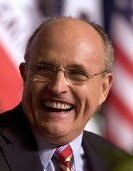 Rudi Giuliani, Former Mayor of New York, United States Attorney for the Southern District of New York:
Rudi Giuliani, Former Mayor of New York, United States Attorney for the Southern District of New York:
“It is about time that we change the listing of the People’s Mojahedin Organization of Iran on the terror list. I have studied terrorism for over 35 years. I have investigated terrorism and I have seen first hand, in my city the devastation that terrorism can bring about. This is not a terrorist organization. This is an organization dedicated to achieving freedom and dignity for its people.” New York, September 24, 2010
__________________________________________________________________
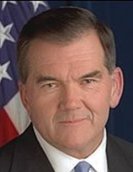 Tom Ridge, Former Secretary of Homeland Security, Governor of Pennsylvania, and U.S. Representative:
Tom Ridge, Former Secretary of Homeland Security, Governor of Pennsylvania, and U.S. Representative:
“It’s a very important and a very visible statement that these Republicans and these Democrats, having worked for Republican and Democrat administrations, feel unanimously that the designation of MEK should be lifted and should be lifted now… The Resistance and the MEK are not looking for money, they are not looking for arms. They just want the freedom to speak. They want to be delisted and take action into their own hands. We need to do that for them because time is running out.” Washington, DC, January 20, 2011
__________________________________________________________________
 Andrew Card, Former White House Chief of Staff, Secretary of Transportation:
Andrew Card, Former White House Chief of Staff, Secretary of Transportation:
“The MEK was our ally in the war on terror… But the State Department was left behind, left behind with a document that is irrelevant today. And the courts have said, check its relevance. My prayerful hope is that the State Department is checking what is relevant today, and they will see today for what it is rather than a yesterday that they didn’t understand or know… I hope that the United States will say the MEK is that ally that we need on the war on terror…” Washington, DC, April 26, 2011
__________________________________________________________________
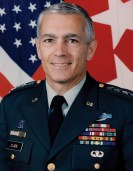 General Wesley Clark, U.S. Army (ret.), Former Supreme Allied Commander Europe:
General Wesley Clark, U.S. Army (ret.), Former Supreme Allied Commander Europe:
“The State Department is reconsidering the foreign terrorist organization listing. Why wouldn’t they take an organization like this off the list? I think they will. I think they must.” Paris, April 27, 2011.
“I’ve seen no evidence that this is a terrorist organization. I’ve asked for this, none has been presented. I can see no reason why they should remain on the foreign terrorist organization list. None…” Brussels, May 25, 2011
__________________________________________________________________
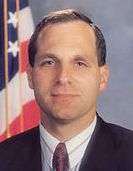 Louis Freeh, Former Director of the F.B.I., U.S. District Judge:
Louis Freeh, Former Director of the F.B.I., U.S. District Judge:
“With respect to the designation of the MEK… I was not consulted in 1997, that the Department of State had listed the MEK . . . . In 1997, the government of Iranduped the U.S.government by inducing it to list the MEK as a foreign terrorist organization, without consulting the FBI… We now have in this new administration the opportunity to do the right thing, but it should be now . . . . The delisting has to immediately take place.” London, February 14, 2011
__________________________________________________________________
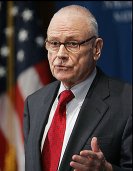 Lee Hamilton, Former Vice-Chair of the National Commission on Terrorist Attacks Upon theUnited States, Chairman of the House Foreign Affairs Committee:
Lee Hamilton, Former Vice-Chair of the National Commission on Terrorist Attacks Upon theUnited States, Chairman of the House Foreign Affairs Committee:
“[F]rom where I stand now I’m really puzzled. I do not understand why the United Stateshas kept the MEK on the terrorist list for all of these years. I have had access to classified information. I know some things may have happened in the past. This is a factual question with regard to the conduct of the MEK and why the United Stateshas not resolved it and spoken out on it. I am not aware of any facts that require the MEK to be on the terrorist list.” Washington, DC, February 19, 2011
__________________________________________________________________
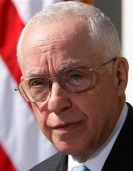 Michael Mukasey, Former Attorney General of the United States and Chief Judge of the United States District Court for the Southern District of New York:
Michael Mukasey, Former Attorney General of the United States and Chief Judge of the United States District Court for the Southern District of New York:
“It is important not only that the [MEK] designation be removed but also that it be removed quickly before Iran and those acting in its behalf can wear down the residents of Ashraf and force them to leave or impose an even worse fate on them.” Washington, DC, January 20, 2011.
“Many people in this room, including me, have had occasion in the past to make the case many times over that there was simply no basis in law or in fact for continuing MEK on the State Department’s list of foreign terrorist organizations and that there are many reasons, including MEK’s close cooperation with the United States in exposing Iran’s nuclear program for removing MEK from that list.” Washington, DC, March 17, 2011
__________________________________________________________________
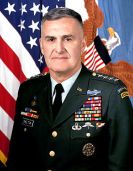 Gen. Hugh Shelton,U.S. Army (ret.), Former Chairman of the Joint Chiefs of Staff:
Gen. Hugh Shelton,U.S. Army (ret.), Former Chairman of the Joint Chiefs of Staff:
“[B]y placing the MEK on the FTO list we have weakened the support of the best organized internal resistance group to the most terrorist-oriented anti-western world antidemocratic regime in the region. That’s a disgrace. Iran’s current regime is clearly a government that needs to change. The MEK is the organization that they fear and that should tell us something right off the bat. When you look at what the MEK stands for, when they are antinuclear, separation of church and state, individual rights, MEK is obviously the way that Iran needs to go.” Washington, DC, February 19, 2011
__________________________________________________________________
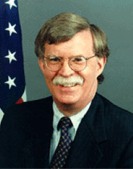 Ambassador John Bolton, Former United States Ambassador to the United Nations:
Ambassador John Bolton, Former United States Ambassador to the United Nations:
“We have seen in recent years that opinion within the U.S. government has tended towards delisting the MEK, but at the end of the Bush administration Secretary Rice decided not to do that for essentially the same reason that the Clinton administration put the group on the list to begin with: to open channels of communication with Iran.” New York, September 24, 2010
__________________________________________________________________
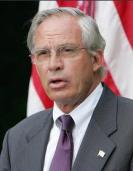 Porter Goss, Former Director of the CIA:
Porter Goss, Former Director of the CIA:
“We can’t kick down the situation on the MEK any more. We’ve got a deadline coming up…The FTO designation is an impediment to the final solution of relocation and I think, therefore, the sooner we get a judgment on that, that is what I think where common sense will lead us….There’s not any justification based on what I’ve seen… I think the first thing to do is get the FTO question resolved and the second thing to do is say these folks [Camp Ashraf residents] deserve a future.” Washington, DC, June 2, 2011
__________________________________________________________________
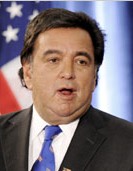 Ambassador Bill Richardson, Former Governor of New Mexico, Secretary of Energy, Ambassador to the United Nations, and U.S. Representative:
Ambassador Bill Richardson, Former Governor of New Mexico, Secretary of Energy, Ambassador to the United Nations, and U.S. Representative:
“[W]ith the MEK . . . I think it makes sense to take them off the terrorism list. North Korea was taken off the list, I don’t know if you know this, some time ago. This is something I’m not going to say—this is bureaucracies. Bureaucracies move slow. To move them you’ve got to do sometimes gigantic leaps. I’m not making any excuses but I do think this is something we need to reassess right away.” Washington, DC, January 20, 2011
__________________________________________________________________
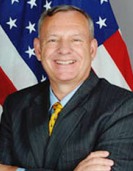 Ambassador Dell Dailey, Former Coordinator for Counterterrorism, Department of State:
Ambassador Dell Dailey, Former Coordinator for Counterterrorism, Department of State:
“It is essential that Secretary Clinton . . . revoke the designation and delist the MEK. It is within her ability to do that right now… Delist the MEK from the foreign terror organization list and let the Iranian citizens decide their own form of government.” Washington, DC, March 17, 2011
__________________________________________________________________
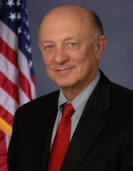 James Woolsey, Former Director of Central Intelligence:
James Woolsey, Former Director of Central Intelligence:
“One thing we should no longer do, and on this I join the others on this panel, is keep the MEK listed as a terrorist organization. In 22 years of practicing law I read a lot of legal decisions and I recently read the Circuit Court’s decision in the case involving the MEK… This eloquently and well written decision of last July by the D.C. Circuit effectively says, quite bluntly, although it doesn’t use this particular analogy, that what the Department of State has done is what the red queen does in Alice in Wonderland when she is asked if first we’re going to have the trial and the verdict and then the execution she says no, execution first, then trial.” Washington, DC, January 20, 2011
__________________________________________________________________
 General Richard Myers, U.S.A.F. (ret.), Former Chairman of the Joint Chiefs of Staff:
General Richard Myers, U.S.A.F. (ret.), Former Chairman of the Joint Chiefs of Staff:
“Delisting the MEK is surely the right thing to do and it’s way past time to do that.” Washington, DC, April 14, 2011
__________________________________________________________________
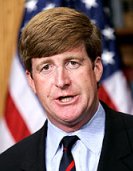 Patrick Kennedy, Former United States Representative, Chairman of the DCCC:
Patrick Kennedy, Former United States Representative, Chairman of the DCCC:
“I personally believe the reason MEK is still listed as a terrorist organization is that our policy in the past has been one of appeasement [of Iran]. The enemy of my enemy is my friend. MEK is the biggest threat to the Iranian mullahs.” Washington, DC, May 19, 2011
__________________________________________________________________
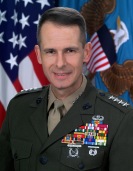 General Peter Pace,U.S.M.C. (ret.), Former Chairman of the Joint Chiefs of Staff:
General Peter Pace,U.S.M.C. (ret.), Former Chairman of the Joint Chiefs of Staff:
“Some folks said to me this week if the United States government took the MEK off the terrorist list it would be a signal to the Iranian regime that we had changed from a desire to see changes in regime behavior to a desire to see changes in regime. My response to that is: sounds good to me.” Washington, DC, February 19, 2011
__________________________________________________________________
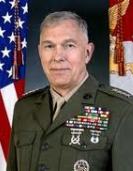 General James T. Conway, Commandant of the Marine Corps (2006-2010):
General James T. Conway, Commandant of the Marine Corps (2006-2010):
As I dispatched some of my commanders to sit down and talk with these folks [MEK members at Camp Ashraf], as I visited myself, these people are not terrorists. They’re no more terrorists than the people here on the panel… We asked those people to disarm. They’re the only people in Iraq who are disarmed. And yet, these people complied willingly and have done what we asked them to do.”
“Now, it seems to me the oppressive events [at Camp Ashraf] are such today that we have got to reconsider our national posture towards the people at Camp Ashraf and the MEK in general… And I’ve got to tell you what happened recently should be a national outrage and, unfortunately, I don’t see it.” Washington, DC, July 26, 2011
__________________________________________________________________
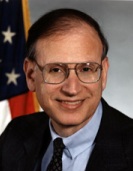 Ambassador Stuart Eizenstat, Former U.S. Ambassador to the European Union:
Ambassador Stuart Eizenstat, Former U.S. Ambassador to the European Union:
I hope as [State Department] do so they will expedite their decision and that they will reflect on the fact that the UK and the EU to which I was an Ambassador, have both lifted their restrictions with respect to the MEK but the State Department I hope will make their decision based on the merits and to do so quickly and promptly, again recognizing the precedents that others have created.” Washington, DC, June 2, 2011
__________________________________________________________________
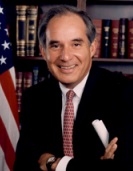 Robert Torricelli, Former U.S. Senator from New Jersey:
Robert Torricelli, Former U.S. Senator from New Jersey:
“[T]he listing of the MEK as a terrorist organization by the United States government is wrong. It is wrong as a matter of law, it is contrary to the facts, it is interfering with the rights of American citizens to be heard and it is contrary to American foreign policy… I call upon Secretary Clinton who I consider a dear friend and one of the finest leaders in the history of our country to do what she knows is right: End the policy and end it now.” Washington, DC, January 20, 2011
__________________________________________________________________
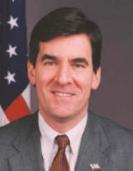 Ambassador Mitchell Reiss, Former Director of Policy and Planning, U.S. Dept. of State and Member of the National Security Council:
Ambassador Mitchell Reiss, Former Director of Policy and Planning, U.S. Dept. of State and Member of the National Security Council:
“Whether or not you believe that we have one year, two years, three years or more before Iranwill be in a position to acquire nuclear weapons, there is still no reason to be shy about doing more to support the Iranian opposition. A good first step would be delisting the MEK.” Washington, DC, January 20, 2011
__________________________________________________________________
 Frances Townsend, Former Homeland Security Advisor to President Bush:
Frances Townsend, Former Homeland Security Advisor to President Bush:
“[T]he tyrannical regime in Iran believed that failure to delist the PMOI was weakness not strength… The greatest single step right now today that I believe the United States government can take to really put pressure on the Iranian regime and really insist and enable change is to delist the MEK. We should do that because the listing is not warranted by the evidence that is public or anything that is classified…” Paris, December 22, 2010
__________________________________________________________________
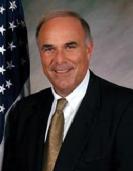 Ed Rendell, Governor of Pennsylvania (2003-2011):
Ed Rendell, Governor of Pennsylvania (2003-2011):
“I will send a letter to President Obama and to Secretary Clinton telling them, one, that the United States is morally bound to do everything we can to ensure the safety of the residents of Camp Ashraf and, two, if, Director Freeh and General Shelton and General Conway and Governor Dean and the rest of these great panelists say that MEK is a force for good and the best hope we have for a third option in Iran, then, good Lord, take them off the terrorist list. Take them off the terrorist list.” Washington, DC, July 26, 2011
__________________________________________________________________
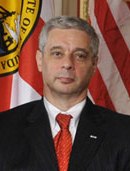 John Sano, former Deputy Director of CIA for National Clandestine Service:
John Sano, former Deputy Director of CIA for National Clandestine Service:
“[Iran’s] Disinformation campaigns basically are feeble attempt to convince the United States and its organizations, the State Department, even Congress, as well as the international observers, that the residents of Ashraf should be displaced and further that the MEK should remain on the foreign terrorist organization list.
“The MEK promotes a peaceful, non-violent, and democratic Iran; is committed to the universal declaration of human rights as well as international conventions and covenants; and promotes a domestic and foreign policy based on peaceful coexistence. The time is long past for the MEK to be delisted from the foreign terrorist organizations list.” Washington, DC, July 28, 2011
__________________________________________________________________
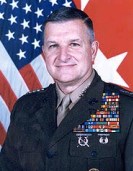 General Anthony Zinni, U.S.M.C. (ret.), Former Commander-in-Chief, U.S. Central Command:
General Anthony Zinni, U.S.M.C. (ret.), Former Commander-in-Chief, U.S. Central Command:
“I know you all realize you are seeing not only the bi-partisanship that was mentioned. You are seeing leadership from our Congress, administrations past and present, from our military and from our intelligence agencies and law enforcement. You have an entire spectrum here that feels the same way. I think what you are going to hear up here is a continuous set of comments much like you’ve heard already: the need to remove the MEK from this list of terrorists, the need to support the opposition groups and understand who they are.” Washington, DC, January 20, 2011
__________________________________________________________________
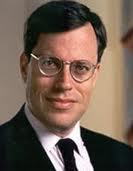 Dr. Philip Zelikow, Former Executive Director of the 9/11 Commission, Counselor of the States Department:
Dr. Philip Zelikow, Former Executive Director of the 9/11 Commission, Counselor of the States Department:
“So what then would I recommend to the Secretary were I in my old job today? I would say, here is a four-part proposal of what you could do: Part one. Delist the MEK as an FTO. Washington, DC, April 26 2010
Avoid Another Srebrenica at Camp Ashraf
The Huffington Post
At first glance, the massacre of Bosnian Muslims in Srebrenica almost two decades ago has little in common with the plight of some 3,500 dissident Iranians at a place called Camp Ashraf in Iraq.
But a closer look shows the opposite.
In 1995, Dutch forces serving as UN peacekeepers to monitor the situation during the siege of Srebrenica did nothing to protect Muslim civilians, who were turned over to the Serb military and slaughtered.
In 2003, residents of Ashraf surrendered their weapons to U.S.-led Coalition forces and, after a 16-month investigation, the U.S. government recognised each one of them as a Protected Person under the Fourth Geneva Convention and issued every resident an ID card and a “Protected Person under Fourth Geneva Convention” card.
Now, eight years later, Iraqi forces – at the instigation of their masters in Iran – have besieged Ashraf. In assaults carried out in July 2009 and last April, 47 of these “protected persons” were killed and 1071 injured. So, just as the Dutch failed in Bosnia, so has the U.S. in Ashraf.
So what?
Until recently, that might have been the answer: But then, a surprise legal event took place. On July 5, the Dutch court of appeals held the country’s government accountable for the 1995 Srebrenica massacre. The court said that the Dutch forces failed to protect the lives of civilian Muslims, and the judges ordered the Dutch government to pay retributions to families of the victims. The court rejected the argument offered by the government that its soldiers were acting under the command of the United Nations thus removing their responsibility for the situation.
Sounds a lot like Ashraf, doesn’t it?
Indeed, as the President-elect of the Iranian Resistance, Mrs. Maryam Rajavi, said the U.S. inaction is far more serious. The U.S. individually questioned every resident of Ashraf, took all their weapons, even what might be needed for self-defence, ruled that they posed no threat of terrorism, and assumed full responsibility to provide protection until their final disposition.
Nothing that has happened since relieves the United States of this responsibility. Yet, the U.S. has refused to interfere in the situation, a decision far more unacceptable than the inaction of Dutch forces during the Srebrenica tragedy. There is no doubt that the United States, by virtue of the responsibility it accepted to protect the lives of Ashraf residents, should be leading an investigation into the Iraqi actions and demanding answers for the killings and injuries committed at Ashraf.
Rather, it has turned a blind eye to the situation.
The irony is that in every area except Ashraf and the People’s Mujahadin of Iran (PMOI), whose members have lived there for 25 years, the U.S. has assailed the mullahs in Tehran and their activities in Iraq. Recently, it blamed the increase in U.S. casualties in Iraq on weapons sent there by Iran. It also has decried Iran’s export of terrorism.
Yet, it has sat on the sidelines as the Maliki government in Baghdad cosies up to the mullahs. And it has done nothing to remove the PMOI from its place on the list of terrorist organisations, a designation that goes back to the days when the State Department thought they could get closer to “moderates” in Tehran through appeasement. The mullahs are still laughing at the success of that ploy, as it advanced their programme of nuclear weapons development.
Now, it’s “put-up-or-shut-up” time for the Obama administration.
Most urgently, it must act to protect those 3,500 at-risk residents of Ashraf, whose plight is getting more desperate every day as another military assault it prepared. They don’t want reparations for their families following their slaughter; they want a safe haven, outside of Iraq.
It must also remove the terrorism label from the PMOI so it can continue to lead the struggle for a free and democratic Iran. That’s all the Iranian opposition wants – no troops, no funds, just to have the unjustified “terror” tag removed. It is this that Iran and Iraq use to justify the killings of Ashraf residents.
Lord Corbett of Castle Vale is Chairman of the British Parliamentary Committee for Iran Freedom. He is a former Chairman of the House of Commons Home Affairs Select Committee.
http://www.huffingtonpost.co.uk/lord-corbett/avoid-another-srebrenica-_b_904251.html
Howard Dean: Why is the MEK on the terrorist list?
Speech by Governor Howard Dean, Former Chairman of the Democratic National Committee (2005-2009), “Middle East, Iran Spring: Obstacles, Opportunities and U.S. Policy,” Washington, DC, July 16, 2011, Excerpt:
I just do want to say two thanks before I start: the first is to the leadership of this organization [MEK] which has worked so incredibly hard to save 3400 unarmed people in Ashraf and to stand up for what’s right in their own country.So I want to thank all of you who have put all these together. I don’t know what number this is, the one that I’ve done, but when this happens — and we will free the people of Ashraf, and we will free Iran from the tyranny of the mullahs — when this happens — when this happens, you will thank us, but we will thank you, because this never happens without the people — the United States cannot stand up for people who won’t stand up for themselves. And you have stood up for yourselves, and we intend to support you in doing that.
Secondly, it’s an incredible honor to be on the platform with so many distinguished American military leaders. And I actually don’t think I’ve ever done this before, but I’m going to. My brother was a — classified as a POW/MIA in Vietnam. He was a civilian, and he was captured in Laos by the Pathet Lao and ultimately executed in December of 1974.
And since I have three Generals here, I want to thank them for the Joint Task Force full accounting, because nearly 30 years later, we recovered his remains because of this extraordinary group of young people. So I want to thank you not just for standing here today, but for what the American military has done not just in the field, which you’re adequately praised for all over the place, but what you do behind the scenes for the families.
Mitchell said when we started that there had been some progress, and there has been progress and there’s also been setbacks.
The biggest setback since the massacre on April 8th has been the clock, because the clock continues to tick. And as of January 1st, it looks like our troops will be out of Iraq, and we cannot trust the word of Prime Minister Maliki. We cannot trust the Iraqis to keep their word in terms of the promises that they made to the people of Ashraf and to the United States of America.
And I deeply regret that the American people have lost over 5,000 brave troops and many, many more than that severely injured only to see in power a puppet of one of the most dangerous regimes on the face of the Earth, which is the Iranian Government.
We can do better than this. And if for no other reason than to preserve the memory of our troops that sacrificed their lives, Maliki owes us at least the dignity of allowing us to be the brave, free country that we are and save the people of Camp Ashraf from destruction at the hands of his regime.
We did not die — we do not want to have our folks die in vain. We will not put up with what Prime Minister Maliki is representing in the Government of Iraq.
I was delighted to see the Spanish judge announce that he was going to investigate Prime Minister Maliki as soon as he stepped down, which, of course, now, he may never do. Because the Spanish courts don’t have the ability to investigate people who are in office, but they do have the ability to investigate people who leave office.
And the Spanish judge is now investigating — announced that he will investigate Prime Minister Maliki as a war criminal.
I was delighted to see that Wes Clark has said and then was quoted in the testimony before the Rohrabacher Subcommittee that he knows a war crime when he sees it, and what happened at Camp Ashraf was a war crime.
But what looms in front of us is a far bigger war crime, and that is the massacre of the remainder of the 3400 residents. And it is very clear there can be no assurance by the Iraqi Government that would have the credibility that we could rely on or that the people of Ashraf could rely on.

Washington, DC, July 16, 2011 - Panel of former senior U.S. government officials calls on the Department of State to expeditiously complete its review and remove the MEK from its list of Foreign Terrorist Organizations (FTO)
What are the reasons for keeping the MEK on the terrorist list?
In 2006, when we disarmed the members of the MEK in Ashraf, we gave a signed — our commander on the ground gave a signed piece of paper to every single resident of — of Ashraf saying that the United States would protect them. We did not say we will protect you until the Iraqis will take over, we will protect you until Maliki takes over or if he changes his mind, then we — we reserve the right — we said that we would protect them.
That is the word of the United States of America.
At that time, when we took over Ashraf and disarmed the residents, the Federal Bureau of Investigation — and we have one of the most distinguished leaders of that agency with us today — according to Colonel Morse, interviewed every single person in Ashraf.
Not one person that they interviewed out of the 3400 was found to be a terrorist.
So now we have a group of people who are under siege by supposedly our ally, who have been found by the Federal Bureau of Investigation not to be terrorists, who have been promised the protection of the greatest nation on the face of the earth, and 35 of them were massacred in cold blood a few months ago. And the threat now is to get the other 3365 at a later time.
These people are not terrorists. This is not a rhetorical game. You see in the paper the pro-Iranian lobbyist saying, well, they’re a cult and they’re this and they’re that.
Well, first of all, I don’t believe that’s true, but even if it were, does that justify the murder in cold blood of people who are under American protection? I think not. Let’s stop the name calling and the foolishness and look at this for what it is. This is genocide, and we will not have it.
The president of the Iraqi Parliament recently visited with Struan Stevenson, who chairs the European Parliament Committee on Iraq. The President of the Iraqi Parliament, the President of the Iraqi Parliament, in his delegation, said that it was an extraordinarily foolish idea to move the people from Ashraf to another location inside Iraq.
If the President of Iraqi Parliament believes that it is a foolish idea to move the people from Ashraf to another location inside Iraq because they won’t be adequately protected, then why is it the policy of the United States to move people from Ashraf to another location inside Iraq?
The American proposal is harming the chances of getting these unarmed civilians out of Iraq alive.
Because the Europeans are now interested in a process where folks from Ashraf could go back — as you know, many of the people in Ashraf grew up in European countries, sometimes, at some point, were citizens, and not only European countries, but American — of America.
Many were educated in the West. In fact, at least there’s one person and maybe more who actually worked for the Department of Defense in the United States of America who has been in Ashraf for some years.
So one of the plans that the Europeans have is that we could relocate the 3400 members of Ashraf, to save their lives, to the West.
Every time the United States Ambassador says anything about relocating them in Iraq, it makes it easier for those who don’t want to relocate folks into Europe to say no.
This is a bad policy that we have, and there is no logical basis for the policy of the United States of America right now. And it has to change.
Now, there are some very smart people here who know a lot about intelligence, a lot more than I do. I’m going to let them talk about it.
But I — I want to close by saying a little bit about why I’m in this. You know, there are — as General Mukasey said at another meeting, there’s about the widest diversity of people on this group, politically speaking, as any group that I’ve certainly ever worked with.
It’s actually been a pleasure for me to actually get to know Republicans as people. I had a job which was trying to get rid of as many people as I could — get them out of office. We’re not talking about the Iraqi way of doing it.
so it’s been a great opportunity for me to get to reach across the aisle and get to know people and respect them, even though, of course, my job was to get them out of office as soon as I could for four years.
I think the thing that brings us together is that we believe in America. Many of the people in this room are Iranian-Americans. And you have very deep feelings about Iran, as you should, as many Irish-Americans have feelings about Ireland, and Jews have feelings about Israel, and so forth and so on.
But as — I’m doing this because I’m an American. I’m doing this because we do live, I think, in the greatest country in the world. What makes — I don’t believe an American is a better person than an Iranian or an African or a Hispanic or from South America or any — I don’t believe — but I do believe the founding documents in the United States makes us an exceptional country in this way: If you look at the Constitution and the Declaration of Independence, all those years ago, we established ourselves as not only a nation of laws, but a nation of hope, that we hope for something better for ourselves than what we had left; that we had a more positive view of human beings than what was currently available in the world of the late 1770s; and that we would stand not just for individual freedoms, but for hope, for opportunity and, most importantly, which is frequently forgotten today, individual responsibilities to each other to recognize the extraordinary human potential that was available. That’s the greatness of America.
This is a moment to decide whether we are not — we are the — whether we are or are not still a great nation.
We are in this for the people of Ashraf not because we want to overthrow the Iranian Government, although that would be a very good idea; we are in this for the people of Ashraf because, as General Shelton said, we gave our word. We stand up for those who are trying to stand up for themselves but don’t have the means to do this.
We risk being the Dutch at Srebrenica instead of being the Americans in the Balkans. We cannot give up our legacy of standing for a free people who are willing to stand for themselves, especially for those who do not have the ability right now to stand for themselves.
We have to do this not for the people of Ashraf, not for the Iranian community; we have to do this so that the United States of America remains a great country dedicated to freedom, opportunity and personal responsibility.
Thank you very much.
